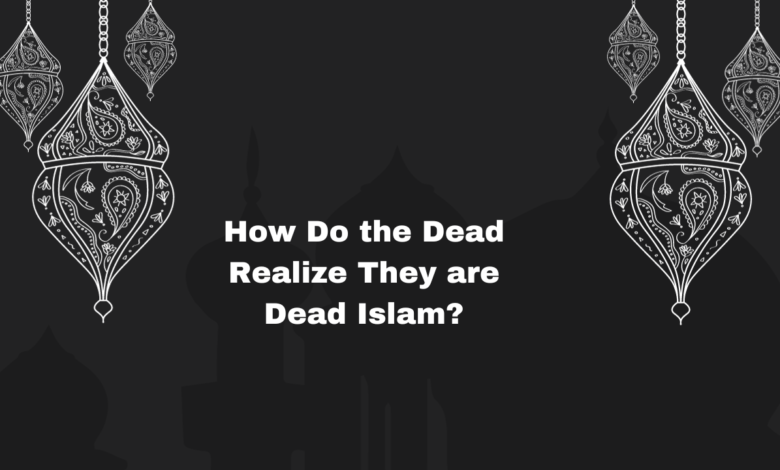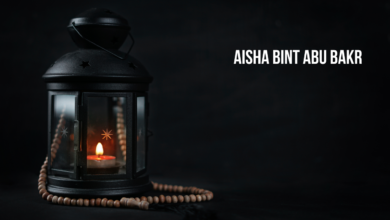How Do the Dead Realize They are Dead Islam?
Understanding the Journey from Life to Afterlife

How Do the Dead Realize They are Dead Islam?
In Islam, the deceased come to realize their death in the intermediate realm known as Barzakh, where the soul becomes acutely aware of its separation from the physical body and the material world.

Introduction
The concept of death and the afterlife is a central and profound theme in Islam, as it is in many world religions. In Islam, the understanding of what happens to a person after death is rooted in a combination of religious texts, traditions, and beliefs. One question that often arises is how the deceased come to realize they are, indeed, dead. In this article, we will explore this intriguing aspect of Islamic eschatology.
The Islamic View of Death and the Afterlife
In Islam, death is seen as a transitional phase from the earthly life to the hereafter. It is a natural and inevitable part of the human experience, as emphasized in the Quran: “Every soul will taste death, and you will only be given your full compensation on the Day of Resurrection. So he who is moved away from the Fire and admitted to Paradise has attained [his desire].” (Quran 3:185).
The afterlife in Islam consists of several stages, including the questioning in the grave, the presentation of deeds, and ultimately, the entry into either paradise (Jannah) or hell (Jahannam). The process of realizing one’s own death is a significant part of this transition.
Also check.
- What is Laylat al-Qadr?
- What is Jesus Real Name?
- What Do You Say on Eid?
- Why is Hajj Important?
- What does Jihad Mean?
The Barzakh: The Intermediate Realm
According to Islamic teachings, after death, the soul enters an intermediate realm known as “Barzakh.” In this realm, the soul is separated from the physical body and becomes aware of its separation from the material world. It is in the Barzakh that the deceased come to realize their death. The Quran alludes to this state in several verses, indicating that the deceased perceive their new reality.
For instance, the Quran states, “And the Horn will be blown; that is the Day of [carrying out] the threat. And every soul will come, with it a driver and a witness.” (Quran 50:20-21). Here, the “driver” and the “witness” are believed to be angelic beings who guide and bear witness to the souls during their transition from the physical world to the Barzakh.
Realization of Death in the Barzakh
In the Barzakh, the soul’s consciousness is heightened, and it becomes fully aware of the separation from the physical body and the earthly life. This realization is a profound and transformative experience. The deceased reflect on their earthly actions and deeds, and they are made aware of their standing in the eyes of Allah.
Islamic tradition holds that the dead can feel the consequences of their actions in the world beyond. For the righteous, this is a time of comfort and bliss, while for the wicked, it can be a period of torment. These experiences help the deceased to come to terms with their death and the ultimate consequences of their actions.
The Accountability of Deeds
The realization of death in the Barzakh is intertwined with the concept of being held accountable for one’s deeds. In Islamic tradition, the deceased will be questioned about their actions in this world. The questioning involves facing one’s deeds, intentions, and the consequences of their actions.
The Hadith literature, which comprises the sayings and actions of the Prophet Muhammad (peace be upon him), provides further insight into this process. It is reported that after death, two angels, Munkar and Nakir, will visit the deceased in the grave to question them about their beliefs and actions. The righteous will answer confidently, while the wicked will struggle to respond.
Conclusion
In Islam, the realization of death is a profound and essential aspect of the transition from this world to the afterlife. It takes place in the intermediate realm of Barzakh, where the soul becomes acutely aware of its separation from the physical body and the material world. The deceased come to terms with their actions and are held accountable for their deeds during this phase.
Islamic teachings emphasize the importance of leading a righteous and just life to prepare for the moment of realization of death. It is believed that a strong connection with Allah and a life of good deeds can help individuals face this moment with peace and serenity, leading to a favorable outcome in the hereafter.

FAQs
How do the dead realize they are dead in Islam?
In Islam, the deceased come to realize their death in the intermediate realm known as Barzakh, where the soul becomes acutely aware of its separation from the physical body and the material world.
What is Barzakh in Islamic belief?
Barzakh is the intermediate realm between this world and the hereafter in Islamic belief. It’s the place where the soul resides after death and before the Day of Resurrection.
Is the realization of death immediate after one’s passing in Islam?
Islamic teachings suggest that the realization of death occurs shortly after one’s passing, as the soul transitions into the Barzakh.
Do the deceased experience any emotions during the realization of death in Islam?
Yes, the realization of death in Barzakh can be accompanied by various emotions, which depend on the individual’s actions and deeds in their earthly life. Righteous individuals may experience a sense of comfort and bliss, while the wicked may experience discomfort and torment.
What happens to a person’s deeds in Barzakh?
In Barzakh, individuals are made aware of the consequences of their actions in this world. They are held accountable for their deeds and are questioned about their beliefs and actions.
Are there specific rituals or prayers to aid the deceased in realizing their death in Islam?
While there are funeral and burial rituals in Islam, the realization of death and the experiences in Barzakh are believed to be determined by one’s faith and deeds in their earthly life.
Is there a difference in the realization of death between the righteous and the wicked in Islam?
Yes, there is a difference. The righteous individuals may experience a sense of peace and serenity when realizing their death, while the wicked may experience fear and discomfort.
How can one prepare for the realization of death in Islam?
Muslims are encouraged to lead a life of piety, faith, and good deeds to prepare for the moment of realization of death. This includes performing acts of worship, seeking forgiveness, and living a just and righteous life.
Are there any Quranic verses or Hadiths that specifically address the realization of death in Islam?
While the Quran and Hadith literature provide insights into the afterlife and the accountability of deeds, there are no specific verses or Hadiths that describe the exact moment of realizing death in Barzakh.



